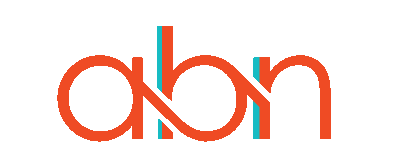Interviewing is a vulnerable experience. Interviewers will judge your employability after a short conversation, placing pressure on you to portray yourself as articulate, knowledgeable, and personable. But you can ease some of that pressure by putting in some time to prepare. Below are four preparation tips with specific examples of ways to get ready for an interview.
1. Research the company.
An easy first step to preparing for an interview is to perform company research. Part of this step means exploring the company website, browsing their social media channels, and looking for any recent news or press releases on Google. You should also keep an eye out for things that describe the company’s values. Not only will this help tailor responses to interview questions so they align with what the company is looking for, but it provides insight into the stated character of the company. If you and the company have a difference in values, it may not be an ideal fit. It’s also important to research and understand the product, service, or mission the company operates around. This will help you articulate educated and pointed questions during the interview, in addition to helping respond to questions with the proper context.
Looking up reviews from current or former employees could also provide some personal and often honest opinions that are helpful when evaluating the job.
2. Prepare your background story.
Most interviews start with you being asked to talk a little bit about yourself. This answer should be kept short and no more than a minute long. It’s an opportunity to set the tone and provide personal touches that may not have been present in your job application. A common mistake in this part of the interview is simply reciting your resume. Time is wasted going over information that is already known by the interviewer. You should touch on the “why” behind jobs you’ve taken as well as what prompted you to look for a new one. It’s also helpful to include personal information such as interests outside of work or a reference to where you grew up. This helps introduce you as a person outside of the confines of a resume or cover letter.
3. Create responses to interview questions.
A starting point for preparing responses to a variety of questions is to recall and list notable situations that have occurred, preferably in a workplace setting. Interviewers often ask for examples that were challenging, required teamwork, disagreement, or were under a tight deadline. By familiarizing with a couple of significant examples, they can often be applied to a variety of interview questions. For example, a story about how a teammate quit right before a deadline could be shaped to highlight skills related to teamwork, overcoming a challenge, or operating under time pressure.
A common mistake in this portion of the interview is to speak in vague or theoretical generalities. Interviewers want specifics, and without them, it portrays either a lack of attention to detail or preparation. You should thoroughly read over the job description and try to put yourself in the shoes of the interviewer. If roles reversed and you were asking the questions, what would you want to know?
4. Compile a list of questions.
Interviews typically end with an opportunity for you to ask questions. This is a critical part of the process, as it provides the chance to properly vet whether the job is a good fit, and it shows preparation and engagement. Ending an interview with no questions to ask gives the impression of a lack of interest.
You can use the job description as a starting point. If details about the responsibilities are unclear, this part of the interview is the time to ask. This is also the time to use background research. Asking questions related to recent developments or news shows curiosity. Questions about the products or services of the company show a serious consideration of the job. Additionally, since the interviewer works at the company, they should be used as a resource. Ask about what they like and don’t like about the company, the culture, or the challenges they faced when they were a new employee.
Taking a focused approach in preparing for an interview not only increases the likelihood of having a quality interview but will also decrease the anticipatory stress. By following the aforementioned steps, you can set yourself up for success on the big day.

